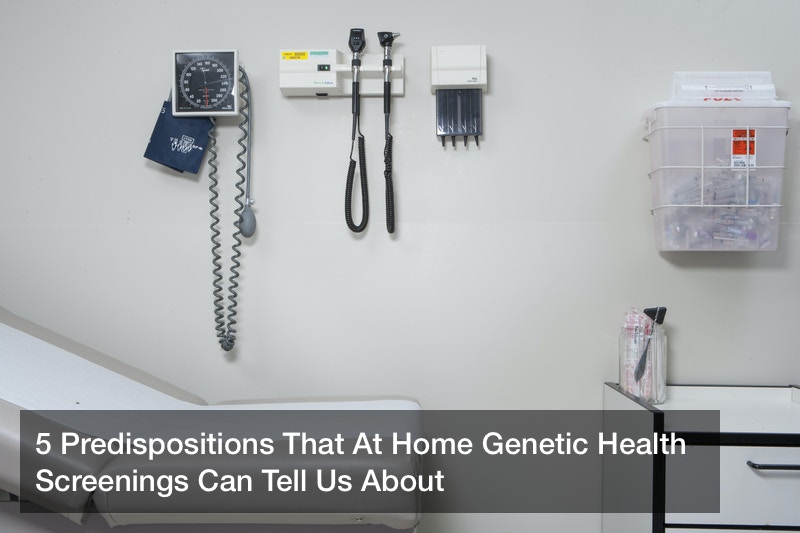
DNA testing was once a science that seemed abstract to many of us. We only heard about it in the context of forensic evidence that was used in the midst of trials. Criminal law lawyers might use DNA testing to exonerate their clients, while prosecutors can rely upon it to secure convictions. This type of DNA testing usually takes place entirely within remote labs, with evidence being collected by professionals at the scene of a crime.
In a different aspect of the legal system, DNA testing can be used to establish familial connections between individuals. For example, if an individual was trying to avoid paying child support, he could insist that the child in question wasn’t his. The judge presiding over the case could order a DNA test to determine whether or not the individual was correct, ultimately resolving the issue. Over time, home paternity tests became available so that families could answer such questions internally. Even cases that have been cold for decades are now being solved thanks to DNA testing. That’s certainly given law enforcement agents and even the odd bail bondsman more evidence to work with during the modern age.
In turn, this has led to DNA testing becoming commercially available. People interested in discovering their family histories can use simple buccal DNA collection kits to send off their DNA samples to commercial labs. These labs test the samples in order to trace clients’ genetic histories. For many, it’s a fun practice that allows people to connect with their genetic pasts. For some, it can facilitate a much deeper connection to their family histories, allowing them to delve into their heritage in a very real way and discover relatives they might not otherwise know about or reveal family secrets that were hidden for generations.
These commercial tests have since yielded to at home genetic health testing. Genetic health testing has long since been available, but it’s now become the norm for a number of situations. For example, those undergoing in vitro fertility treatments often genetically screen embryos before having them implanted, ensuring that the healthiest embryos are implanted. Pregnant mothers often take part in genetic screenings that allow them to determine whether or not their fetuses are healthy. Therefore, it makes sense that just as the same DNA testing services used to determine paternity because available at home, so did the same DNA testing services that helped determine genetic health factors.
It’s easy to feel anxious about at home genetic health testing kits. You may not actually want to know everything about your genes. It can be nerve-wracking to know that you’re potentially more at risk of a certain disease due to your genetic makeup — something that you have no control over. But at the same time, this kind of testing can really empower you. Even if your genes make you predisposed to certain conditions, there is a lot of preventative care that you can take part in to lower your risk of developing them. In a lot of ways, it’s arguable that you’ll live a healthier life if you’re more aware of the conditions that you should be most concerned about. With that in mind, let’s explore some of the different genetic issues that these types of kits can shed light upon.

1. Addiction Predisposition
Did you know that you potentially can be genetically predisposed to addictive behavior? Addictive behavior is the kind of behavior that makes it easier for you to fall into substance abuse or other compulsive and destructive acts.
Substance abuse is a complex issue and scientists are still attempting to understand the full extent to which genetic and personal histories can affect a person’s predisposition to developing problems related to addiction. The current theory espoused by many is that a combination of genes and environment can determine whether a person is more or less likely to develop an addiction. For example, while using a substance cannot alter a person’s DNA, the products that the individual’s DNA create can be affected by that substance.
Furthermore, there are specific genes that can indicate a predisposition to substance abuse disorders. While those genes may be irrelevant if they’re never exposed to a certain environment, once they are exposed to that environment, an individual may then develop addiction issues. Essentially, they create an increased vulnerability to the condition, rather than being the only cause of the disorder in itself. Genes discovered through at home genetic health testing also can predict the severity of the condition an individual may struggle with. While marijuana may be a “gateway drug,” people who use it and who carry these genes may be more likely to try more serious substances. People with certain types of genes may also respond more immediately to different addiction treatment strategies than others.
Ultimately, at home genetic health testing kits may help people recognize their risk of developing a substance abuse disorder. This will potentially make it easier for them to recognize when they’re dealing with a serious problem and furthermore can help them devise ways to treat that problem.

2. Predisposition to Alzheimer’s Disease
At home genetic health testing can further help you determine whether or not you have a predisposition for Alzheimer’s disease or other dementia diseases. These tests are often just the beginning, as subsequent analysis may need to be performed by a medical professional. You may discover at home that you possess a certain gene marker for these types of conditions. Typically, you would then need to explore further testing to discover exactly what diseases you are at risk of developing. Certain genes can almost certainly predict whether or not an individual will develop early-onset Alzheimer’s disease, for example. This can understandably be rather frightening. But knowing that you have a predisposition for developing a disease doesn’t mean that you need to start exploring dementia home care in the near future.
What you can do is explore preparing for your future. Keep an eye out for certain symptoms that may need to be researched further, like constantly misplacing your keys or forgetting the names of certain people. You can explore memory games and research the types of treatments that are being developed for such diseases. Remember that a certain genetic code is far from a death sentence, but it may be a good idea to prepare for potential aspects of your future.
This is why some people choose to draw up a living will after discovering their predispositions for such conditions. A living will allows those around you to understand your wishes if you find yourself unable to advocate for yourself. While it’s already been advised that anyone over 30 should consider creating a living will or appointing a health care proxy, this is especially important for those who may be more likely to suffer from illnesses like Alzheimer’s disease or dementia.

3. Predisposition to Chronic Illnesses
There are a number of different chronic illnesses that individuals can suffer from in the long term. A lot of these are triggered by the immune system. For instance, autoimmune disorders like lupus are still being researched by scientists. However, research is revealing that there may be a connection between an individual’s genetic history, as well as their surrounding environment, and the development of conditions like lupus. As at home genetic health testing kits grow in their capabilities, they may warn individuals about their propensity for developing these conditions. Some chronic illnesses may also be triggered by different factors like diet. If you are more likely to develop a chronic illness, you may want to eat an anti-inflammatory diet or work with your doctor to develop a plan that will help you avoid such issues.
At the same time, other factors can make you more likely to suffer from chronic illness — even if you don’t have the genetic markers for one. If you’re more likely to struggle with obesity, you could in turn be more likely to struggle with issues surrounding chronic illness, as obesity is often a contributing factor to these conditions. The same can be said about cardiovascular disease. Understanding your genetic risk factors through at home genetic health testing kits can help you prioritize the kinds of choices that will keep you healthier in the long run. We all know that we should make healthy choices, but understanding our genes better reinforces this fact. These tools can potentially guide some towards specific choices that are geared to fight the predispositions caused by genes.

4. Predisposition Toward Baldness
Not every gene that at home genetic health testing kits test for will illuminate a potentially deadly disease. Your genes can also determine your predisposition towards less serious (but nonetheless important) issues, like baldness. While most men assume that they will be at risk of losing their hair as they grow older, not all of them experience this problem. Some maintain a full head of hair well into old age, while others begin to lose their hair in their 20s. This is often determined by genes on both the maternal and paternal sides of the family. While you might dread losing your hair as you grow older, understanding that it is more likely for you can at least allow you to make proactive choices.
For that matter, realizing that your hair is more delicate and prone to falling out allows people to invest in better hair care products. If you understand that your hair is more prone to thinning, you may want to spend more on good shampoos and conditioners that are gentler on your hair. Though you don’t need to start considering hair replacement systems in the immediate future, you may want to consider building up your confidence outside of your natural hair growth.

5. Predisposition to Cancers
There is no particular gene that makes it a certainty that you will develop cancer. But certain genes that can be identified through at home genetic health testing kits may indicate a stronger likelihood of you developing a certain type of cancer or inform the way that you screen for those types of cancers.
For example, there is a specific type of gene known as BRCA1 that can make carriers more likely to develop breast cancer, as well as other cancers. A person who carries this gene is not certain to develop breast cancer. But they may want to explore their genetic histories with their family doctor and pursue more frequent screenings in order to ensure that if they do develop breast cancer, it is caught early. In more recent years, some women with BRCA1 genes have pursued prophylactic mastectomies and breast reconstructions, though this is a controversial approach to the disease.
This kind of approach, like almost any prophylactic strategy for preventing cancer, is controversial. However, being able to make this kind of decision about your health can be incredibly empowering. While cancer is understandably a scary topic, it needs to be demystified so that we can utilize different strategies to lower our risk of developing cancer. Furthermore, the most effective way to treat cancer is to catch it as early as possible. If you are being screened much more regularly for cancer, your cancer can be caught earlier and you will often have a much better prognosis than you would if it was caught at a later stage. It’s important to take advantage of available health care services and to not treat this type of screening as something to be scared of.
Again, it’s important to understand that at home genetic health testing kits are just the beginning. They are still in development. As more information becomes known about different medical conditions and their connections to genes, these tests will become more specialized and will reveal more information about those taking them. But for now, those who receive concerning results should further pursue genetic testing with their doctors in order to discover what they should and shouldn’t be concerned about.
But as always, knowledge is power. The more you know about your health, the more you will be able to prepare yourself for any challenges that you may have ahead. The medical field is constantly advancing, and you should consider these types of tests as useful information rather than anxiety-inducing prospects. Furthermore, it’s incredibly useful to have these kinds of tests available if you don’t know much about the medical history of your family. Adoptees and those that have lost contact with their biological families can really benefit from understanding the genetic legacies that their relatives have left for them. But ultimately, everyone should consider being tested for the types of conditions that are encoded into our genes.



